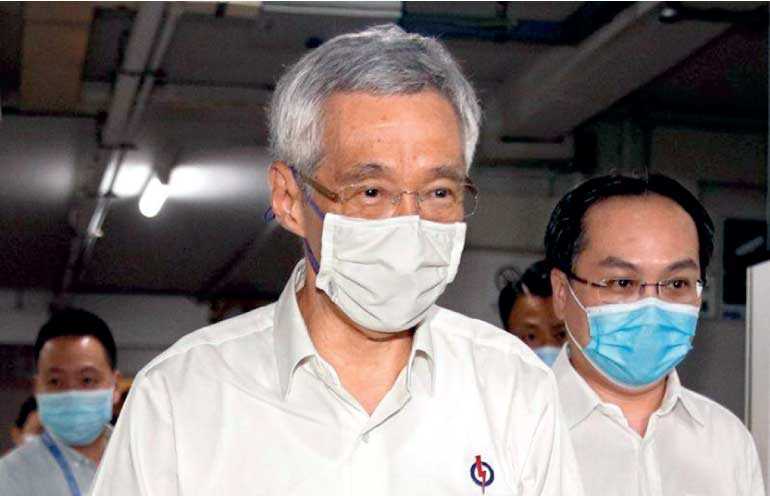Sunday Feb 22, 2026
Sunday Feb 22, 2026
Thursday, 3 September 2020 00:00 - - {{hitsCtrl.values.hits}}

Singapore's Prime Minister Lee Hsien Loong arrives at a People's Action Party branch office, as ballots are being counted during the general election, in Singapore - Reuters
Singapore (Reuters): Singapore must remain open to overseas talent even as it tightens immigration curbs to preserve local jobs, its Prime Minister said on Wednesday, warning a turn inwards would be a blow for the global business hub facing a record recession.
The city-state’s jobless rate has hit a decade-high in recent months, despite the government spending about S$ 100 billion ($ 73.47 billion) in support measures to offset the impact of COVID-19 on its open economy.
Worries over jobs have turned the focus on its high immigration levels, an issue emphasised by opposition parties during a July general election in which they mounted a historic challenge to the ruling party’s unbroken hold on power.
“Even as we adjust our work pass policies, we must be careful not to give the wrong impression that we are now closing up and no longer welcoming foreigners,” Lee Hsien Loong said in a near two-hour impassioned speech in Parliament. “We may be under stress now, but we cannot afford to turn inwards.”
Lee’s government, which has been tightening the inflow of foreigners for several years, is taking more steps to promote local hiring. Last week, it raised the salary threshold for issuing work passes for foreigners, the second hike this year.
Singapore’s political stability and pro-business policies have long attracted investments from big global firms.
Lee said a pharmaceutical firm, which he did not name, wanted to build a vaccine manufacturing facility in Singapore and several Fortune 500 companies were looking to relocate their regional headquarters to the city-state.
Financial firms also wanted to expand, including their technology operations.
“But for them to come here, they must feel welcome and be allowed to bring in the talent they need,” he added.
Last month, authorities put 47 companies on a watch-list for potential discriminatory hiring practices against locals.
Online vitriol against foreigners prompted state investor Temasek to call out “racist” posts against its employees.